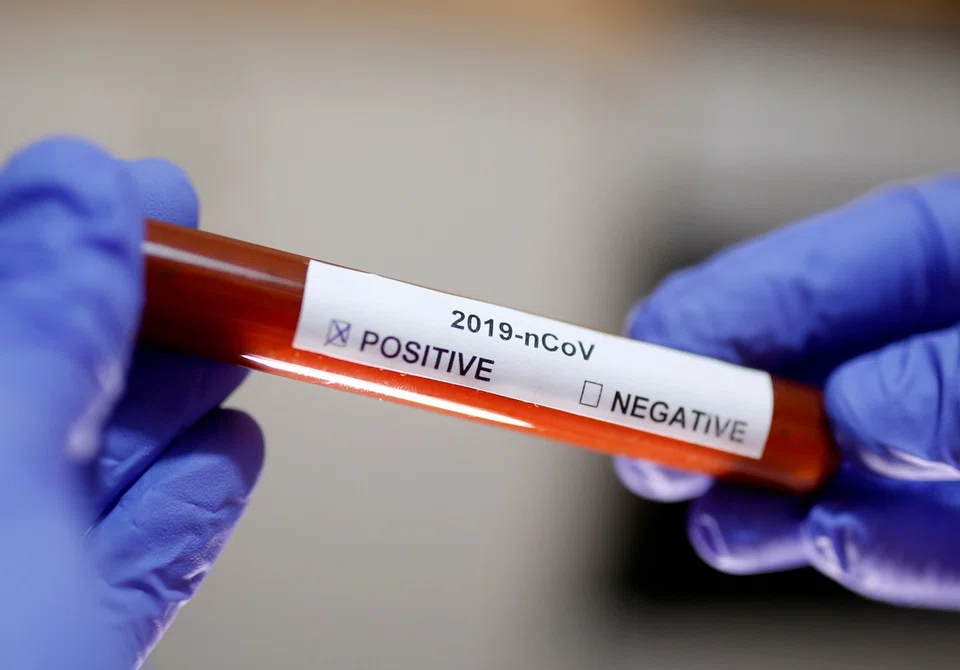Covid-19 highlights controversies of the Chinese research system
Researchers possibly withholding information about human-to-human transmission, or publishing papers using someone else's research data... These are just a few of the controversies of the Chinese research system highlighted by the Covid-19 outbreak. How can the scientific community break out of the cycle of alleged unscholarly conduct?

The Covid-19 pandemic is not only the most prominent international news currently, but also the focus of scientific research. Researchers from all over the world are investing a lot of effort and energy in this battle. The performance of Chinese researchers has been particularly outstanding: within one month of the outbreak, Chinese researchers successfully sequenced the genome of the Covid-19 virus, gaining high praise from the international community for their speed and high efficiency. However, upon closer scrutiny, problems in China's scientific research emerge.
Firstly, conducting research with the sole view to publish is a prevalent attitude held by many Chinese researchers. Following the emergence of the new coronavirus, Chinese scientists were given a once-in-a-lifetime opportunity to have their papers published in top international journals, reporting various virus-related epidemiological and biological information.
A controversial paper published in the New England Journal of Medicine had presented proof of human-to-human transmission among persons with close contact in December 2019. Leaders in disease prevention in China including top epidemiologists of the Chinese Centers for Disease Control and Prevention and leaders of Jinyintan Hospital (a designated hospital for treatment of these viruses) were among the authors of the paper.
Scientific researchers should uphold the spirit of pursuing and defending truth, respect the intellectual achievements of others, and cooperate and share for mutual benefit. Publication is not the fundamental purpose of scientific research.
However, during the first two investigations conducted in Wuhan at the beginning stages of the epidemic, the authorities released an inaccurate statement saying that human-to-human transmission was not apparent. This assessment misled the public and also became the basis of China's official guidance policy to some extent. The authors of the New England study later explained that they were doing a retrospective study, which might account for the perceived lag in information conveyed. While this may have temporarily eased public anger, the fact remains that if the public's suspicions are right that the scientists had purposely concealed the fact of human-to-human transmission, this is a serious problem in their attitudes as scientific workers.
Another case was that of Fudan University's Professor Zhang Yongzhen. He and his team had already analysed the genetic data of the coronavirus. However, writing a paper to share the data at the critical moment of fighting the coronavirus would be time-consuming. Prof Zhang and his team thus decided to share the data on the National Centre for Biotechnology Information (NCBI)'s database for the greater good of other scientific researchers instead. However, without gaining prior consent from Prof Zhang, Nankai University's Professor Gao Shan and his team used the shared data and published a dissertation ahead of Prof Zhang, triggering debate on the ethics of scientific research workers. Scientific researchers should uphold the spirit of pursuing and defending truth, respect the intellectual achievements of others, and cooperate and share for mutual benefit. Publication is not the sole purpose of scientific research.
According to the traditional evaluation system then, the profiteers after the epidemic is over may well be the ones who published multiple papers during the course of the epidemic, not the frontline workers who made numerous sacrifices.

Secondly, the evaluation system that is tightly tied to the job titles and performance of the authors raises doubt over the fairness of evaluation. In 2003, while the SARS epidemic was a tragedy for Chinese society, it provided researchers with the opportunity to research for the greater good of the country and its people. The papers published by many researchers became their "result slips" that earned them varying levels of rewards and promotions later on. China's scientific research evaluation system is clearly results-oriented. The number of papers published, as well as journal ranking, play a part in these evaluations. These driving forces account for the explosion of publications published during this epidemic.
However, what is worrying is that frontline medical workers do not have the time to write academic papers. Some people have thus sarcastically remarked that just as a group of frontline workers are desperately saving lives at the front, a group of researchers are at the back desperately collecting data and writing papers. According to the traditional evaluation system then, the profiteers after the epidemic is over may well be the ones who published multiple papers during the course of the epidemic, not the frontline workers who made numerous sacrifices. It is no wonder that some people are standing up for the frontline medical workers and asking people to leave them some papers to write, lest the true heroes of this battle sacrifice for nothing.
Objectively speaking, a considerable number of Chinese academic journals do not uphold adequately rigorous review processes, have an uneven mix of papers with varying quality, and experience low profitability.

Thirdly, the conflict between Chinese and Science Citation Index (SCI) journals. For a long time, the inclusion of papers in databases and journals such as Lancet and Nature has been a major criterion for the evaluation of the quality of a paper. In fact, the impact factor (metric used to determine how good a journal is based on the times its articles are cited) is a key consideration when assessing an article. Chinese academic journals pale in comparison to English SCI papers that have a clear advantage under a system that prefers the latter kinds of publications. Objectively speaking, a considerable number of Chinese academic journals do not uphold adequately rigorous review processes, have an uneven mix of papers with varying quality, and experience low profitability. Therefore, papers with higher academic value are generally published in English academic journals. Large numbers of high-quality papers are published in SCI journals and rarely appear in domestic journals. Yet, at the same time, a considerable amount of scientific researchers in China are unable to read English papers quickly. Thus, people are worried that publishing papers in foreign journals will affect academic exchanges in China. Relevant authorities in China are aware of this, and have tried to encourage papers to be published in domestic journals recently. However, until the day the reasons for this situation is resolved, researchers will continue to "vote with their feet" by choosing to publish in English academic journals.
Recently, China's Ministry of Science and Technology has become aware of these problems and repeatedly issued statements in an attempt to "eliminate the scientific and technological evaluation system that only values publications". They even requested that "at least one-third of the papers that researchers publish must be published in domestic academic journals". However, the method in which a fair and reasonable evaluation system can be established is inconclusive, and this remains the crux of the issue.
Related Readings: Can the Wuhan coronavirus lead to good governance? | China CDC Head: Hero or villain?



![[Photos] Fact versus fiction: The portrayal of WWII anti-Japanese martyrs in Taiwan](https://cassette.sphdigital.com.sg/image/thinkchina/3494f8bd481870f7c65b881fd21a3fd733f573f23232376e39c532a2c7593cbc)

